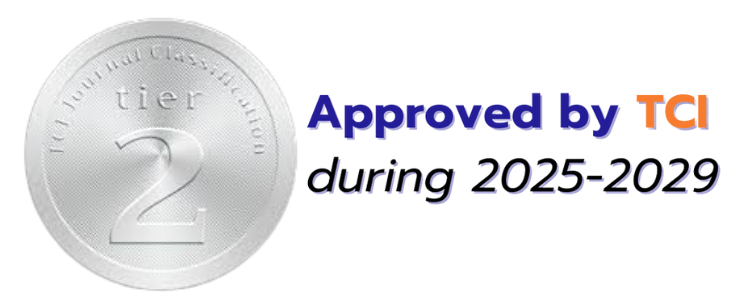The Study of Growth Mindset of Science Teachers Who Teach Disadvantaged Students
DOI:
https://doi.org/10.56825/jehds.2025.916066Keywords:
Growth Mindset, Science Teachers, Disadvantaged Students, Small SchoolsAbstract
This research aimed to survey the growth mindset of science teachers who teach disadvantaged students. The study group consisted of 40 science teachers from 40 small and rural schools under the Office of the Nakhon Si Thammarat Primary Educational Area Office 2, selected from the school database of the educational service area. The research instruments included a growth mindset test and a growth mindset interview form. The statistical data analysis included percentages, frequencies, means, standard deviations, and content analysis. The results showed that science teachers in small and rural schools under the Nakhon Si Thammarat Primary Educational Area Office 2 generally exhibited a high overall growth mindset. When analyzing interview data from the top 10 science teachers with the highest growth mindset scores who agreed to participate in interviews, a clearer understanding of their growth mindset characteristics emerged, particularly in terms of their belief in developing abilities and their perseverance when facing challenges or obstacles. Despite all participants demonstrating a high level of growth mindset, the interviews revealed differences in how this mindset was expressed. The researcher classified these teachers into four groups based on the interview characteristics: Group 1, which demonstrated the characteristics of a growth mindset very clearly; Group 2, which demonstrated these characteristics moderately clearly; Group 3, which demonstrated these characteristics less clearly; and Group 4, which showed a decrease in the characteristics of a growth mindset.
Downloads
References
Bedford, S. (2017). Growth mindset and motivation: a study into secondary school science learning. Research papers in education, 32(4), 424-443. https://doi.org/10.1080/02671522.2017.1318809
Blackwell, L. S., Trzesniewski, K. H., & Dweck, C. S. (2007). Implicit theories of intelligence predict achievement across an adolescent transition: A longitudinal study and an intervention. Child development, 78(1), 246-263.
Dweck, C. S. (2006). Mindset: The new psychology of success. Random House.
Esparza, J., Shumow, L., & Schmidt, J. A. (2014). Growth Mindset of Gifted Seventh Grade Students in Science. NCSSSMST Journal, 19(1), 6-13.
Gouëdard, P. (2021). Sky's the Limit: Growth Mindset, Students, and Schools in PISA. PISA 2018. OECD Publishing.
IPST Thailand. (2022). Growth mindset in thai students: results from PISA 2018 assessment. The Institute for the Promotion of Teaching Science and Technology (IPST).
NCYA Thailand. (2019). Innovative thinking for child and youth development in 2019. Department of Children and Youth.
OECD. (2019). PISA 2018 Results (Volume III): What School Life Means for Students’ Lives. OECD Publishing. https://doi.org/10.1787/acd78851-en.
Plaks, J. E., Stroessner, S. J., Dweck, C. S., & Sherman, J. W. (2001). Person theories and attention allocation: preferences for stereotypic versus counterstereotypic information. Journal of personality and social psychology, 80(6), 876–893. https://doi.org/10.1037/0022-3514.80.6.876
Rissanen, I., Kuusisto, E., & Kuusisto, A. (2016). Developing teachers' intercultural sensitivity: Case study on a pilot course in Finnish teacher education. Teaching and Teacher Education, 59, 446-456. https://doi.org/10.1016/j.tate.2016.07.018.
Schmidt, J. A., & Shumow, L. (2020). Testing a mindset intervention as a resilience factor among Latino/a students in science. Journal of Latinos and Education, 19(1), 76-92. https://doi.org/10.1080/15348431.2018.1478295
Schmidt, J. A., Shumow, L., & Kackar-Cam, H. (2015). Exploring teacher effects for mindset intervention outcomes in seventh-grade science classes. Middle Grades Research Journal, 10(2), 17-32.
Sookawong, C. (2023). Growth Mindset: The Growth Mindset is The Heart of The New Generation of Student Teachers. Academic Journal of Mahamakut Buddhist University Roi Et Campus Vol, 12(1), 571-583. [translated]
Strosher, H. L. W. (2003). Prospective and Practicing Teachers' Beliefs: A Study of Implicit Theories of Intelligence and Teacher Efficacy (Master’s thesis, University of Victoria).
Tan, D., & Maeda, Y. (2021). Perceptions of science teachers’ growth-mindset practices and U.S. high school students’ initial science identity and its development. International Journal of Science Education, 43(13), 2206-2225. https://doi.org/10.1080/09500693.2021.1958021
Wisessathorn, M., Saetang, P., Paimpuech, R., & Sarobrass, C. (2022). The Development of Growth Mindset Test for Coding Teachers. Journal of Education and Innovation, 24(2), 232-247. [translated]
Yeager, D. S., & Dweck, C. S. (2012). Mindsets that promote resilience: When students believe that personal characteristics can be developed. Educational psychologist, 47(4), 302-314.
Downloads
Published
Issue
Section
License
Copyright (c) 2025 วารสารศาสตร์การศึกษาและการพัฒนามนุษย์

This work is licensed under a Creative Commons Attribution-NonCommercial-NoDerivatives 4.0 International License.







